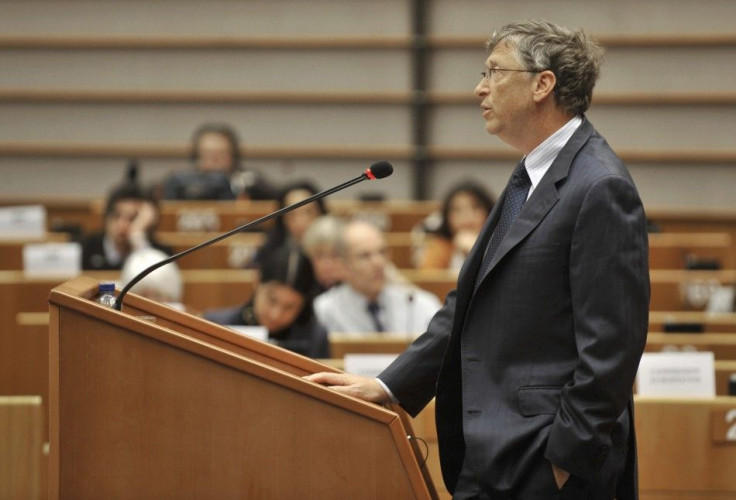Bill Gates Injects $750 Million Into Troubled AIDS Fund

DAVOS, Switzerland (REUTERS) -- Microsoft chairman and philanthropist Bill Gates pledged a further $750 million to the troubled global AIDS fund on Thursday and urged governments to continue their support to save lives.
These are tough economic times, but that is no excuse for cutting aid to the world's poorest, he said in Davos at the annual meeting of the World Economic Forum.
The Global Fund to Fight AIDS, Tuberculosis (TB) and Malaria announced two days ago that its executive director, Michel Kazatchkine, was stepping down early following criticism over misuse of funds and cuts in funding.
The public-private organization, which has the backing of celebrities like rock star Bono, accounts for around a quarter of international financing to fight HIV and AIDS, as well as the majority of funds to fight TB and malaria.
But it has been forced to cut back and said last year it would make no new grants or funding until 2014.
The Bill & Melinda Gates Foundation is giving $750 million through a promissory note -- a fresh injection in addition to the $650 million that the Gates charity has contributed since the fund was launched 10 years ago.
While that will give an immediate boost, more is needed from governments, which have provided the bulk of the $22.6 billion that has been raised by the Geneva-based organization to date for its work in 150 countries.
The commitment of governments was shaken last year when the fund reported grave misuse of funds in four recipient nations, prompting some donors such as Germany and Sweden to freeze their donations.
Gates, however, played down the problem and praised the fund's transparency, which he said had exposed corruption problems that might well have remained hidden at other organizations.
If you are going to do health programs in Africa you are going to have some percentage that is misused, he said.
We've looked at where they've found money that wasn't applied properly and how they tracked that ... the fact is the internal checks and balances have worked.
Recent scientific studies have shown that getting timely AIDS drug treatment to those with HIV can significantly cut the number of people who become newly infected with the virus, increasing the case for maximum access to drugs.
So the decision in 2011 to cancel fresh funding, due to waning political commitment, has alarmed healthcare activists like Medecins Sans Frontieres (MSF).
Now that new scientific evidence shows that HIV treatment itself could be one of the best ways to turn the epidemic around, it's time for governments to roll up their sleeves and commit to getting the Global Fund back on track, said Tido von Schoen-Angerer, MSF's head of access.
(Editing by Jon Boyle and Kirstin Ridley)
MUST READ - Samsung Galaxy Note Releases Feb. 19: Top 10 Reasons Why iPhone 4S Should be Afraid
© Copyright Thomson Reuters 2024. All rights reserved.






















